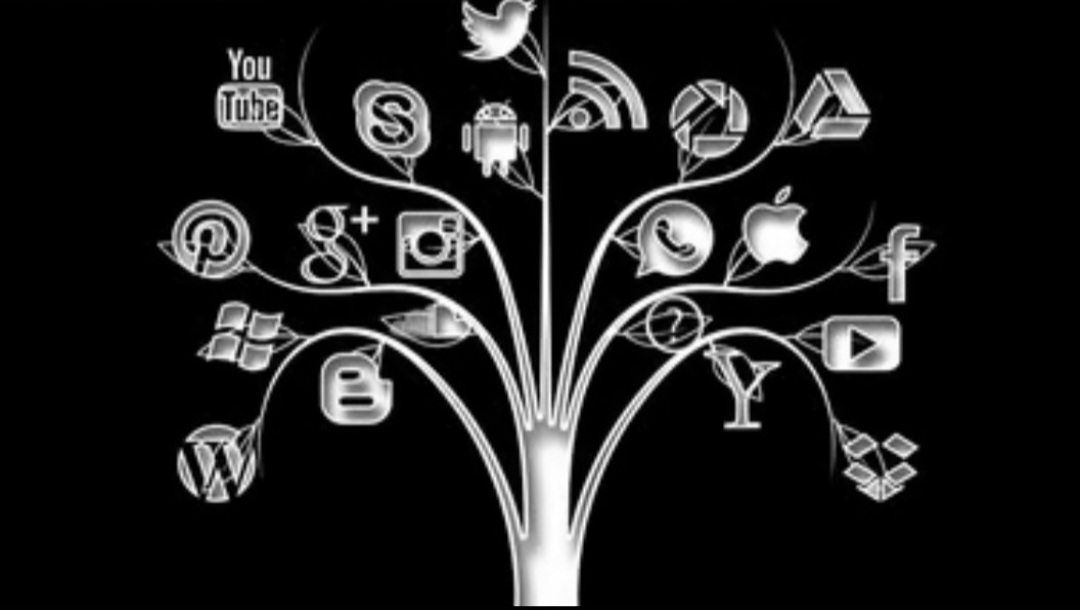My Spanish class will, on occasion, finish with a few minutes left to spare before the bell rings. During these few minutes, there is total silence – a pin drop could be heard. All 25+ are locked into their phones, more specifically their socials. They are checking stories on Instagram, scrolling their TikTok feed, or replying to Snaps from their friends.
The Pew Research Center conducted a survey amongst teens ranging from 13-17 which found that 1 out of 5 American teens feel they are constantly on TikTok or Youtube. A similar study which was conducted by Gallup concluded that on average teenagers spend an average of 4.8 hours on social media daily.
Bobby Nicini, a junior at Eastern Regional High School, reported he nearly doubles the national average daily. A similar sentiment was expressed by another junior at Eastern, Tripat Dhanoa, who stated, “I spend at least eight hours a day online. All my friends have like eight hours.”
The issue is evident and there seems to be no end in sight. In the same study conducted by the Pew Research Center, it was shown that the number of teens who reported constant use of the internet had gone up substantially since 2015. The amount of lives dominated by social media is only growing by the year.
The addiction has become widespread and is causing massive issues for the younger generation. Last year, the U.S. Surgeon General Vivek Murthy, warned of the dangers that social media addictions pose on the mental health of American youth. These dangers range from sleeping disorders to suicidal thoughts and gestures. Jean Twenge, psychologist and author of the novel iGen, writes that children are more anxious, lonely, and depressed due to social media.
In my mind, this issue is on par with the obesity epidemic that swept across America in the early 2000s. And like the obesity epidemic, the U.S. government has continuously failed to resolve this growing issue among its youths.
Some states have made attempts, such as requiring boards of education to develop social media literacy courses that would educate children in healthy ways to use the internet. However, schools are not forced to implement these lessons and due to this very few schools have made progress on the issue.
Another strategy that is growing more popular amongst politicians and state governments is a complete ban on social media platforms for teenagers. Those who support this policy argue this is the best way to save children from the hidden dangers of social media. How can they be hurt if they can’t access it?
These government actions are well-intentioned, but will never work. A quick look at American history will tell you that if you bar Americans from having something, they will only want it more and find ways around the ban. And education is a proven strategy for failure. Think about all the kids who sat through the D.A.R.E program in middle school just to be toking it up in their high school bathroom.
In my view, the government will never successfully find a way to resolve this issue. Frankly, it shouldn’t even be the government’s responsibility. Rather, the responsibility should fall on parents.
It is a parent’s job to monitor their children and ensure their child is not spending their entire life behind a screen. It is the parents who put the iPad in front of the child, not the government. Parents of today’s youth are giving their child the iPad far too soon – which is the root of this issue.
According to Common Sense Media, 42% of American children have a cellphone at the age of 10. That is far, far, far too young to be on Instagram and scrolling YouTube. The most common age for Americans to get cell phones is 13 years old, but Surgeon General Murthy states that even that is too young for children to have phones.
What’s made worse is most parents don’t even regulate what their child is doing on YouTube and Instagram. A lot of parents just throw their children in front of the iPad and allow them free range over the entire internet. As long as it keeps them from kicking and screaming, the parents don’t care.
If parents are going to give their child access to social media at a young age, they must be more attentive to their child’s activity online. Parents are the front line between their children and social media addiction. They should be limiting the hours they are permitted to be on social media and restricting what their child is watching on the internet.
My parents didn’t allow me to have an iPhone until I reached middle school – I was 12 when I first downloaded YouTube and 13 when I made my first Instagram account. I also was given a limited number of hours I was allowed to be behind a screen. At the time, I may have felt ostracized for not knowing the latest Minecraft YouTube drama, but looking at it now, it’s probably the best thing my parents could have done for me.
My parents used this limited technology strategy for both me and my two older brothers. However, when my youngest brother came around, they chose the opposite direction. They allowed him an iPad as early as the first grade – initially intended to be a pacifier in the car; it quickly spiraled out of control and became his only pastime.
Now Kellan is in the 5th grade. Every day after school, I come home to find him curled in a ball scrolling Youtube Shorts, and he won’t move out of that position until dinner is called.
Similar to my younger brother, Ninci had gained free roam of the internet at a young age – first grade to be precise. Ninci believes, “Having such early access to the entirety of the internet is probably why I have such a problem with it today.”
Children like my little brother have no need for access to social media. A ten-year-old does not need to be scrolling TikTok or watching Typical Gamer (my little brother’s favorite YouTube channel). I think if you are under the age of 14, you should not have any social media.
Unfortunately, I do not set the minimum age required for social media platforms. Ultimately, it’s up to the parent’s judgment to determine if their child is ready for social media or not. So when a parent is making the decision, they must carefully consider if their child is mature enough and the effects that social media could have on their child.
Social media addiction is a plague that America must find a remedy for. The government can’t figure it out, so it’s up to the parents to monitor what their children are doing on social media platforms. Parental negligence is the root of this plague and must be weeded out.








